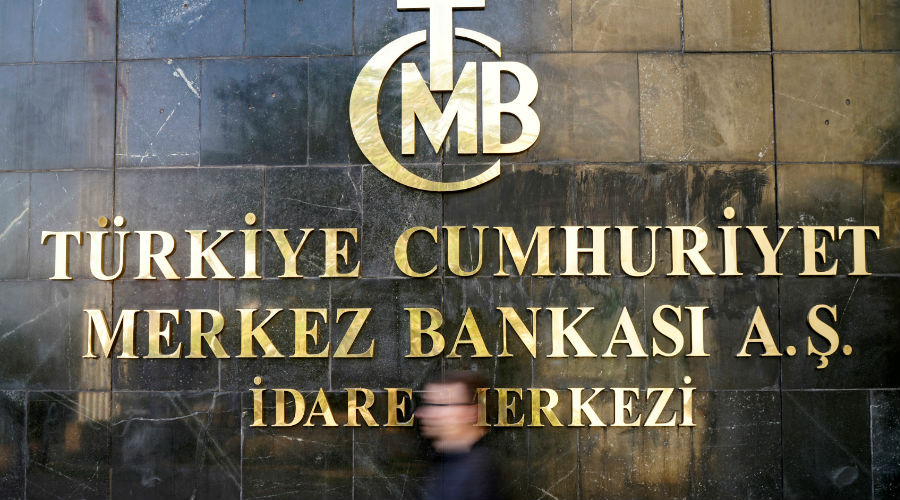Turkish President Recep Tayyip Erdogan continues his years-old pressure on the Central Bank to lower interest rates in a bid to encourage lending and consumption, and support the country’s economic growth, damaged by the mid-2016 failed coup attempt. The Turkish economic community considers that the move is highly risky, especially because of the possibility that the apex bank would lose credibility and weaken its ability to achieve monetary and financial stability.
Persistent Pressure
Erdogan sought to launch a campaign to promote his move. On November 17, he said, “If you try to give loans with such high rates, of course investments will be hindered and halted... We lowered interest rates and inflation fell to single digits.” Two years ago, he accused defenders of high rates of treason against the country.
On several occasions, Erdogan severely criticized Turkish banks for making what he considered as unfair profits by keeping interest rates high, despite the economic difficulties that the country is going through. He also claimed that the banking system is controlled by an interest-rate lobby. In fact, Erdogan’s pressure over the past period pushed the Central Bank to gradually lower interest rates from 12 percent in 2014 to 8 percent, after the prime minister appointed Murat Cetinkaya as the governor in April 2016. The new governor appeared to be more flexible than his predecessor, Erdem Basci, to Erdogan’s economic guidelines.
Before the new governor was appointed, Erdogan directed the Central Bank’s general assembly to change mid-level officials in a bid not only to strengthen his influence on the bank, but also to pave the way to ensure harmony between the bank’s management and the current governor.
Multiple Indications
Erdogan’s efforts to influence the apex bank’s monetary policies and the resulting reactions have several political and economic connotations.
Firstly, the Central Bank is the last regulatory authority that the president wants to control after he took over all state institutions including police, the judiciary and ministries. This was a part of a large-scale purge against members of Fethullah Gulen's movement following the failed mid-July 2016 coup attempt.
Secondly, the rift between Erdogan and the government’s economic team became more evident than before. The rift is evidenced by Deputy Prime Minister Mehmet Simsek’s call for the Central Bank to maintain its strict monetary policies against the president’s endeavors.
Thirdly, Erdogan realized that popular confidence in the policies pursued recently by the Justice and Development Party (AKP) is declining, because of increasing restrictions and an unprecedented decline in economic growth to 3.1 percent last year.
That is why Erdogan tries to promote short-term populist economic policies to support consumption and encourage lending. These policies may sustain economic growth momentum needed by Erdogan and the AKP, but on the long term they carry a risk of increasing inflation rates and liquidity in the market.
Fourthly, independence of central banks in several states, including Turkey, has become less evident, according to several views. Officials of central banks suffer from the interference of politicians, but this does not mean these institutions are being stripped of their powers in these states, even in Turkey.
Negative Results
It is now evident that the Turkish Central Bank is facing considerable difficulties in carrying out its missions under political pressures, which not only will reduce its professional credibility, but will also block its efforts to achieve its primary goals of reducing or curbing inflation without necessary tools to achieve monetary and financial stability.
This might cause several economic damages in the coming period. Confidence in the Turkish exchange market is likely to decline, thus pushing the Lira lower against hard currencies. One day after Erdogan’s statements, the Lira fell to 3.9 per dollar, after it the had lost about 25 percent of its value last year.
Moreover, the Central Bank has limited options to maintain the stability of the currency amid global market volatility, a high trade deficit and low savings.
Lack of Implicit harmony between the Turkish president and the Central Bank over monetary policies would discourage foreign investors from pumping foreign capital in the Turkish market. That is due to unexpected monetary measures that may impact their financial assets. Moreover, the government faces challenges in attracting foreign investments, due to high geopolitical risks following the 2015 failed coup attempt and the country’s strained relations with its European partners.
Moreover, it appears that maintaining the push for lower interest rates may undermine efforts to curb inflation, which rose to a record high of 11.9 percent in October 2017, compared with 7.1 in the same month last year. This can impact asset quality, according to ratings agency Moody’s in recent months.
In light of this, it can be said that Erdogan’s pressures on the Central Bank to change its monetary policies may impose new negative consequences on the Turkish economy and cause a decline in popular confidence in the AKP's policies.


